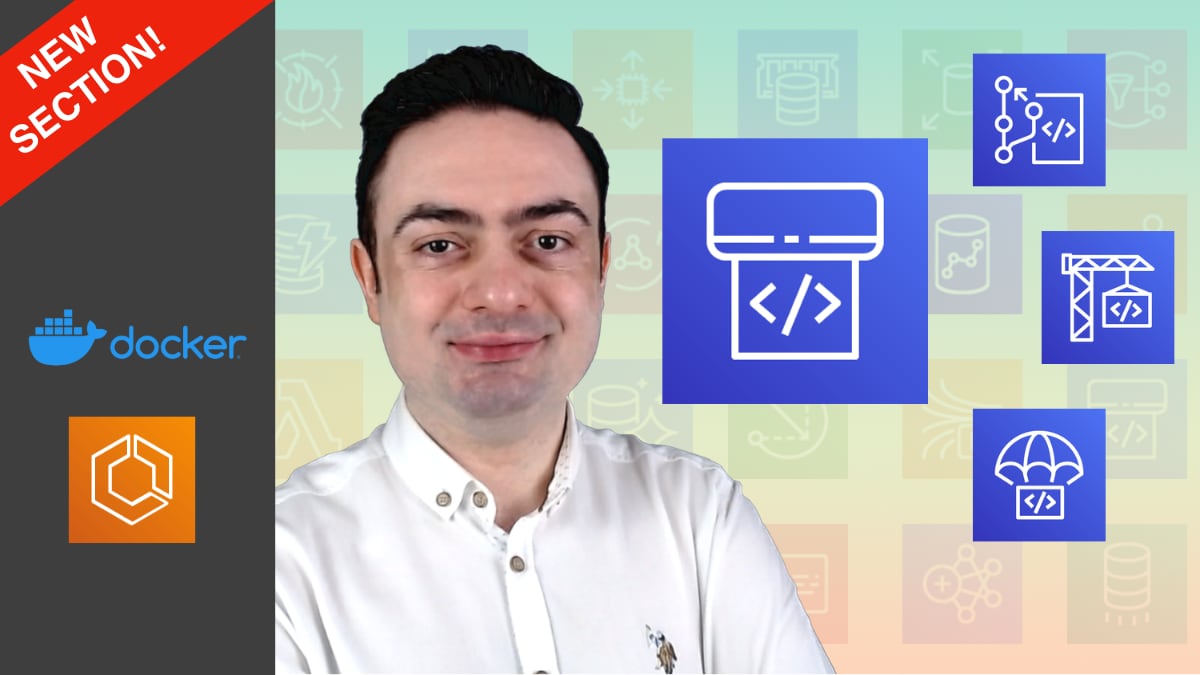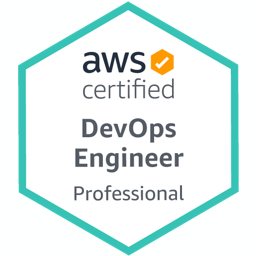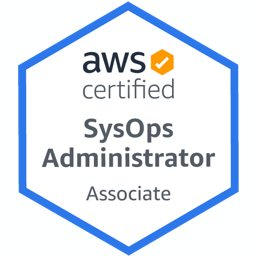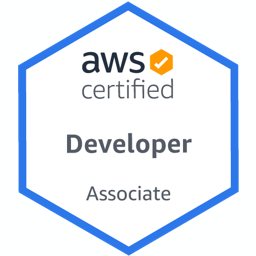I am excited to share our newest section in my Udemy bestseller AWS CodePipeline Step by Step course, Building Docker Images & ECS Rolling Deployments With AWS CodePipeline.
If you’ve not joined yet, for the next five days, you can join this course with a best-price coupon special to the launch of the new section using the link below:
https://www.udemy.com/course/aws-codepipeline-step-by-step/?couponCode=SHK-BEST2601
Our newest section focuses on building your Docker images, publishing them to Docker Hub or Amazon ECR with AWS CodePipeline and AWS CodeBuild, and deploying them to Amazon ECS as rolling deployments** using the direct integration of CodePipeline with ECS.
We mainly use AWS Fargate for the infrastructure to focus on deployments, as the deployment process is the same regardless of who manages the infrastructure. Only how your infrastructure scales out to launch replacement tasks differs. But, we also have an example with Auto Scaling Group capacity providers in the end.
We will use the same sample Angular application we used in the previous sections but build a new pipeline specific to Docker deployments to make our examples clear.
What is in the new section?
So, the new section covers the following topics step by step in summary:
- Introduction to Docker & ECS concepts for AWS CodePipeline
- Preparing
AWS CodeBuild buildspecsto buildDockerimages and pushing them toDocker Hub. - Defining environment variables on CodePipeline and CodeBuild to store Docker Hub credentials and other data.
- Building a pipeline on
AWS CodePipelineto build and push your Docker images using AWS CodeCommit and AWS CodeBuild. - Using
AWS Secrets ManagerorAWS Systems Manager Parameter StorewithAWS CodeBuildto store your Docker Hub credentials or other data as environment variables. - Pushing the Docker images built with your pipeline to
Amazon ECR. - Creating an
ECS task definitionfor the Docker images built by your pipeline. - Creating an
Amazon ECS clusterwithFargateand Auto Scaling Group capacity providers for hands-on examples. - Creating an
Amazon ECS service with rolling deployments on the Fargatecapacity provider to work with AWS CodePipeline. - Adding an
Amazon ECS standard deploy action on AWS CodePipelineto perform rolling deployments on your ECS service. Tagging your Docker imagesbuilt by your pipelinewith Git commit IDs on AWS CodeCommitthat created them.- Using
Amazon ECR Public Galleryto pull official Docker images instead of Docker Hub while building your Docker images withAWS CodeBuild. - Understanding why you need the
ECS deployment circuit breaker with automated rollbacks, and how it detects deployment failures automatically and rolls failed deployments back. - Understanding how
min & max running tasks valueswork in ECS rolling deployments. - Understanding what you need to consider while performing
ECS rolling deployments on Auto Scaling Group capacity providersinstead of AWS Fargate.
This section doesn’t cover ECS Blue/Green deployments with AWS CodeDeploy, which I plan to discuss in detail in another section in AWS CodePipeline Step by Step in the future.
It became 18 lectures with around 3.5 hours of *NEW* content. Besides, English subtitles are provided for all lectures from the start. I hope you find the content helpful in learning to use AWS CodePipeline with Docker & Amazon ECS.
Join AWS CodePipeline Step by Step today!
If you have not joined AWS CodePipeline Step by Step yet, you can do so with a best-price coupon special to the launch of our newest section. But the coupon will last only five days. So, don’t miss this chance if you are interested.
Please use the link below to apply the discount:
https://www.udemy.com/course/aws-codepipeline-step-by-step/?couponCode=SHK-BEST2601
By joining this course, you can learn to use AWS CodePipeline with Docker & Amazon ECS, along with our previous content for EC2 & S3.
So, I hope to see you in AWS CodePipeline Step by Step!







